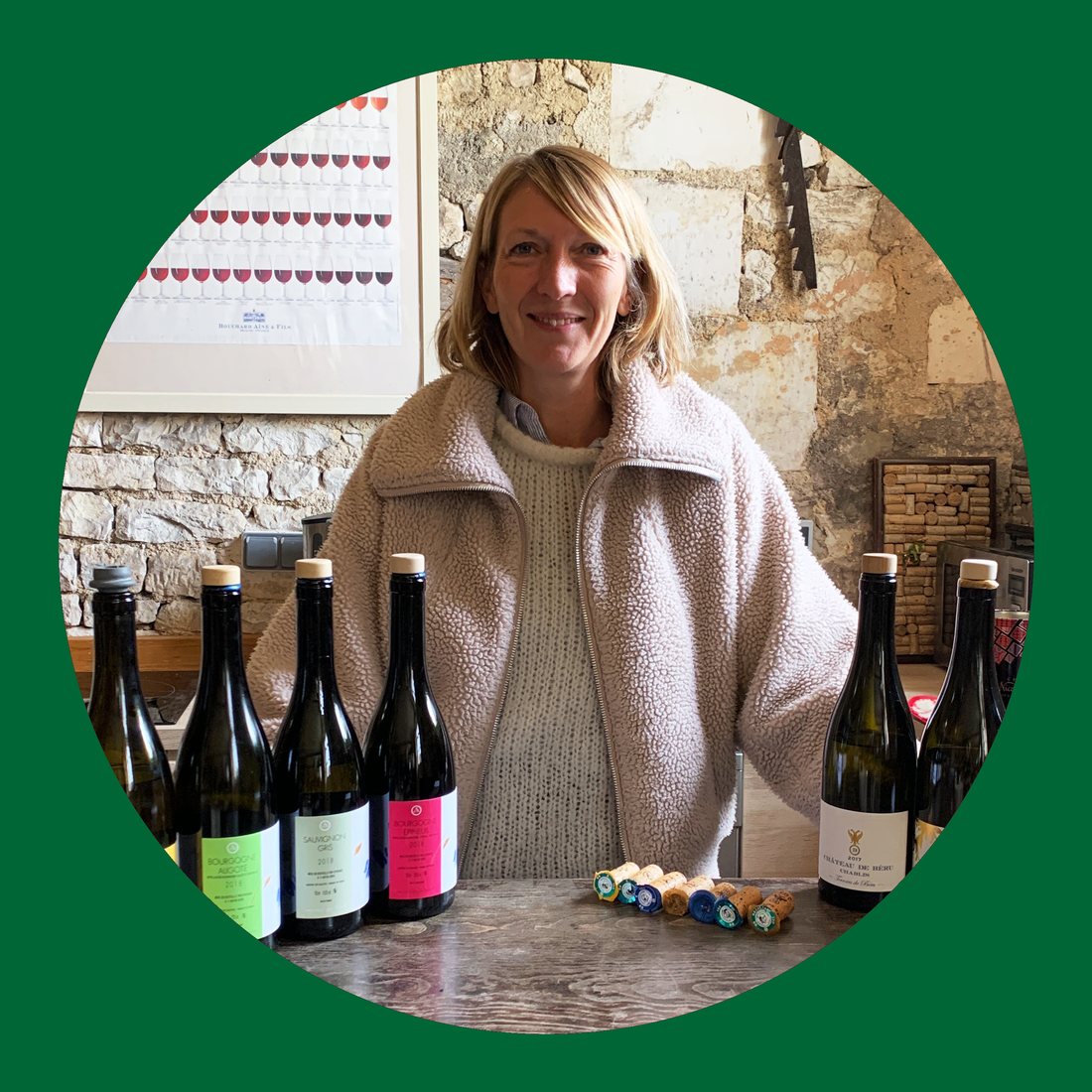
Winemaker Spotlight: Athénaïs Béru
“To fully flourish, vines, like women and men, need solid roots.” - Between the vines
Athénaïs' de Béru
To understand why Athénaïs is such an important leader in the revolution of Chablis and the wider world of wine, it is probably important to know a little about the leather jacket wearing rebel. It would be easy to think of Athénaïs as simply a young wine entrepreneur with fresh blonde hair and a knack for communication and business. However, behind the polished look of the Parisian ex-financier is a dedicated and hands-on farmer who geeks out on the vegetative cycles, biodynamics and is hell-bent on waging war against the old, stuffy, chemical spraying Chablisienne cohort.
Truth be told, Athénaïs comes from solid Chablis stock; their family settled in Chablis and have made wine there since the 1600s, and indeed, their home is none other than the stately chateau of their town, Béru. However, phylloxera, ill health and the untimely death of Athénaïs’ father saw the family relocating to Paris and their deep ties with wine making slowly begin to fade. The land which they had once cultivated was rented to a farmer, with a 35 year guarantee. In 2004, after Athénaïs had carved out a career in finance and wealth management, the farmer who was renting their land announced that he wished to retire and that he had no heirs who wanted to take on the lease (a highly unusual thing to happen in Burgundy). It was in this moment that Athénaïs felt a huge pull back to the land that her father had worked. Within 24 hours, she had made the decision to move back to Chablis and begin her lifes’ most important work.
Aside from becoming an incredible winemaker, Athénaïs has also become a real leader and driving force in the matter of organic and biodynamic farming in Chablis. Something that she is always clear to point out is that this type of farming takes time and will be a lifelong commitment. Indeed, when taking back the family vines in 2006, she took them back slowly, whilst immediately beginning the conversion to organic farming. By 2009, she was back in control of the 15 hectares, all of which was now organic. By 2010, the land was also being farmed biodynamically. This process was far from an easy one and she explains that it is like weaning the vines off of antibiotics and teaching the vines how to self-medicate and adapt to the changes of the seasons and their environment at large. It can take 2-3 (terrifying) years for the vines to regain their equilibrium when transitioning from chemical farming.
However, after the rocky years of conversion, she has really witnessed the benefits and says that every year her grapes get better and express more energy and balance. She believes that this harmony and strength of her vines results in wines that are more protected and have lasting power. You only have to see her vineyards to witness the benefits of her work; vineyards that are abundant with wildlife, flora and fauna. Athénaïs argues that to farm any other way is to mute the true character of the wine and the terroir, causing all the wines to taste the same. Indeed, when you taste her wines, they are not the typical Chablis that the market has been saturated with in the last decades - they are electric and concentrated.
Any great winemaker will tell you that their most important work is in the vineyard. As such, Athénaïs is very much hands off in the cellar and doesn’t adhere to a set recipe of winemaking as so many others do. The grapes are rigorously sorted by hand so that only the best fruit is being used, before being gently crushed. Fermentations are natural and slow and the wines go through a long elevage in barrel. Similarly, as the grapes improve year-on-year, she has been able to reduce sulphur additions to little or none.
Aside from creating deep, chiselled and undeniably exciting wines, Athénaïs is also helping us to rediscover the real taste of Chablis. In doing so, she is also a fearless champion of the land and the environment in which she works, going up against the establishment who seek to continue the chemical farming, mass production and profiteering. We couldn’t agree more with what she said, “The respect of the land and the environment.. It’s a global way of living. We question what we consume, the importance of the seasons, and what happens around us.”
